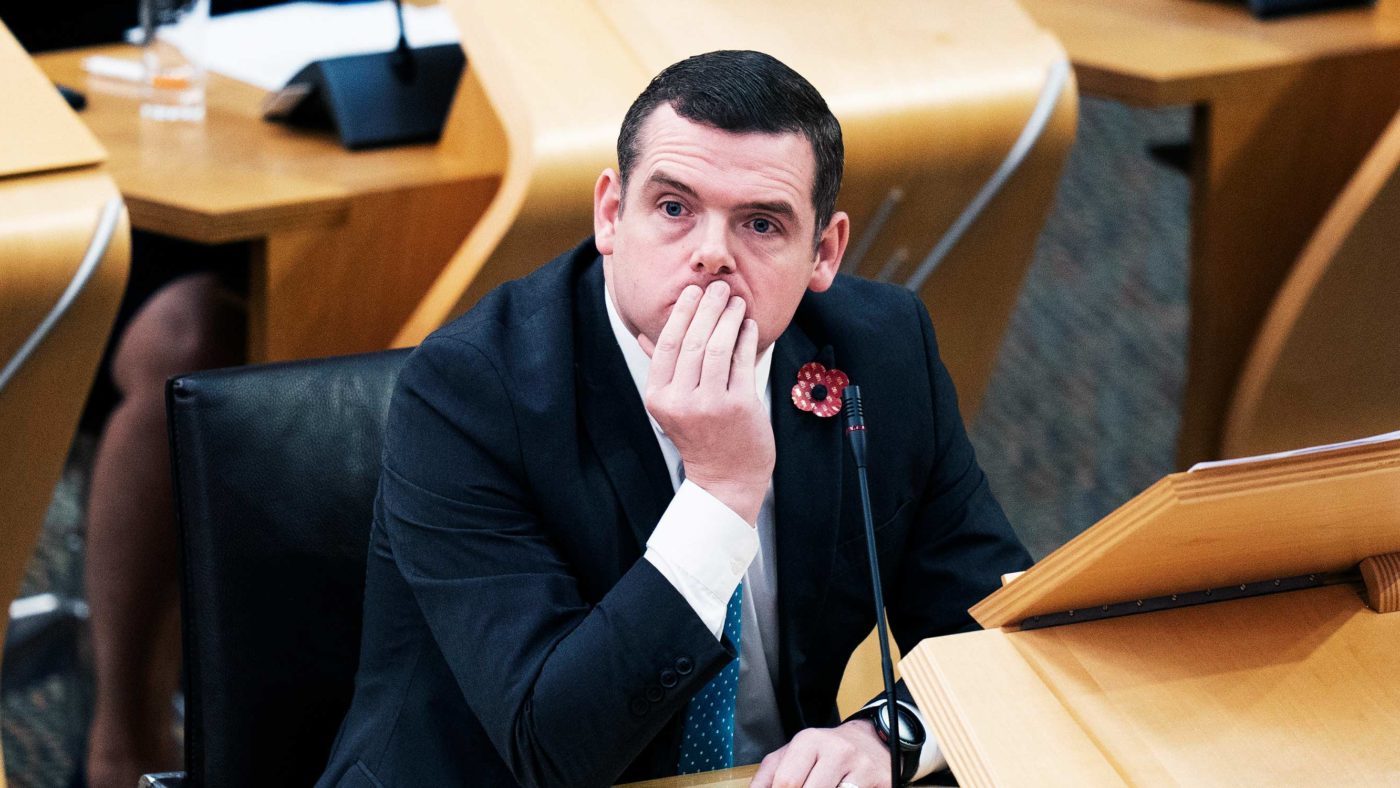When Jacob Rees-Mogg called Scottish Tory leader Douglas Ross a ‘lightweight’, it was all too predictable that talk of the Scottish party going its own way would rear its head again.
It may seem deeply counter-intuitive from a unionist perspective to suggest that the Scottish Conservatives, erstwhile defenders of the Union, should seek their own form of independence from London – the gags alone would be a nationalist spin doctor’s dream.
It would be wrong, however, to characterise such discussions as a fit of pique amongst those aghast at not only the conduct of the Prime Minister but the ferocity of the punishment beating meted out to Ross for speaking out. It is a natural, mature and strategic discussion to be having.
The idea of splitting from London, most recently mooted in 2011 when Murdo Fraser stood for the party’s leadership on that platform and lost, does not come without its problems – not least the fact the membership and a contingent of MPs and MSPs are deeply opposed to it.
Allied to the presentational issues posed by a unionist party going its own way, the nature of the relationship between this new entity and the Conservative Party in the rest of the UK would need to be defined – critics would suggest this disembodied creation would have as much clout as Northern Ireland’s unionists, effectively becoming ‘Little Scotlanders’ and further hastening the country’s drift from national, pan-UK politics.
Indeed, within Scotland, many die-hards – those hyper-unionists who were energised and traumatised in equal measure by the 2014 referendum and view politics solely in terms of ‘UK Good, Everything Else Bad’ – have been relentless in their criticism of Ross for calling on Johnson to go, claiming instead his focus should be on Nicola Sturgeon and her administration.
That is to miss the point; under the current framework, the Scottish Conservative Party – and by extension the broader centre-right in Scotland – is a moribund construct. That may seem a harsh diagnosis. After all, the party attracted 100,000 new votes at the recent Holyrood election – but it is stuck in ideological aspic.
Those votes were gained purely by the party’s constitutional stance, nothing more. The rigidity of the party’s offer is a consequence of the terrain of Scottish politics since the SNP victory in 2007, but beyond refusing to countenance a referendum, there is nothing in terms of a compelling policy offer to change the dial and actually draw enough voters to win an election.
The dead hand of the London machine has a role to play in this sustained lack of ambition – which, it must be said, is not for want of effort from the party’s more cerebral MSPs at Holyrood. The party’s perennial issue of misdeeds at Westminster undermining the effort in Edinburgh is particularly acute in the current circumstances.
However, it is compounded by the lack of strategic and intellectual capital presently being expended on Scotland and the Union in Westminster beyond telling the nationalist’ no to a second referendum; it was instructive that Michael Gove, the purported unionist at the heart of government, joined in the sneering directed at Douglas Ross.
Where next, then? The creation of a new entity may be painful – symbolically and practically – but in the long run that initial shock therapy could get the unionist right in Scotland moving again. By taking back control, to borrow a phrase, there would be more space to develop a policy platform which is more adept to responding to the realities of Scottish politics in the devolved context – that genie is out the bottle, and instead of complaining about it, unionism can take the initiative. This greater freedom to operate, without having to look over their shoulder at the latest Westminster misdemeanour, can allow a party, without baggage, to actually attempt to win an election and put the constitutional question to bed, rather than simply limit an opponent’s margin of victory
Douglas Ross may not be the man to make that leap, but there is a clear case for reassessing the status quo which has left the Scottish Tories as a minority pursuit with limited demographic and geographical horizons since the old Unionist Party was absorbed by the Conservatives in 1965.
Any new party cannot and should not be a tribute act to the old outfit – Scotland has changed since then – but it can learn from them. As proven by some its luminaries such as Walter Elliot, the concept of ‘nationalist unionism’ not afraid to challenge London, is a viable and coherent one. If unionists want to save the UK, a little less Westminster may go a long way.
Click here to subscribe to our daily briefing – the best pieces from CapX and across the web.
CapX depends on the generosity of its readers. If you value what we do, please consider making a donation.


